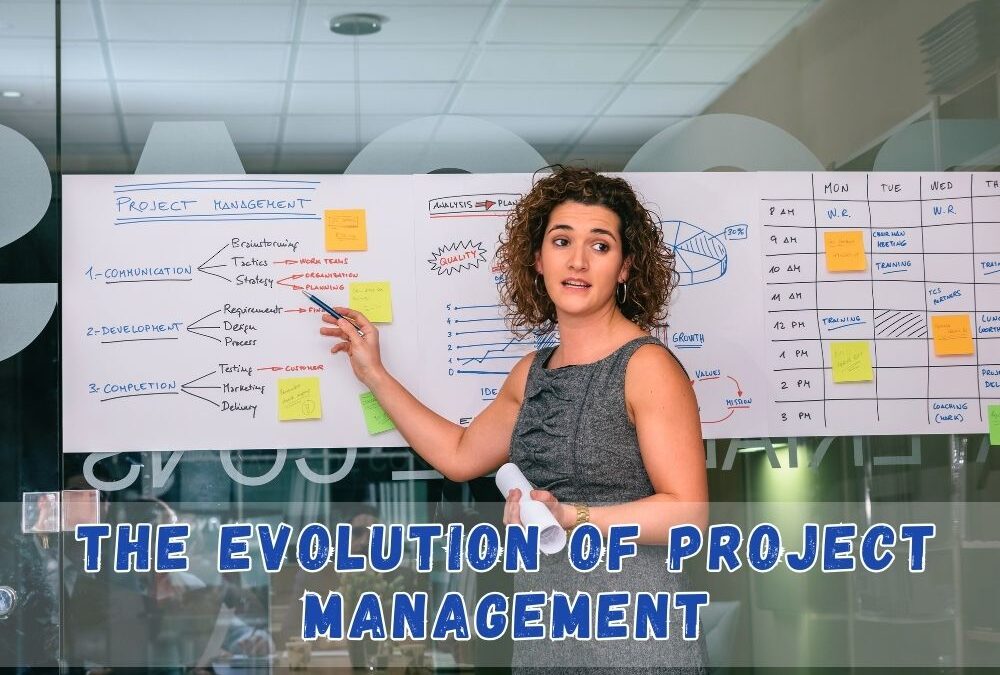Project management, once considered a niche discipline, has emerged as a cornerstone of modern business operations. Its evolution over the decades has been marked by significant shifts in methodologies, technologies, and approaches. As we stand on the cusp of a new era, it’s crucial to examine the trends shaping the future of this dynamic field.
Agile Methodology: Embracing Flexibility and Collaboration
In recent years, Agile methodology has revolutionized project management. Born out of the need for adaptability in rapidly changing environments, Agile emphasizes iterative development, collaboration, and customer feedback. It enables teams to respond swiftly to evolving requirements and market dynamics, fostering a culture of innovation and continuous improvement.
The Agile approach has gained widespread adoption across industries, from software development to marketing and beyond. Its principles have transcended traditional project management practices, influencing how teams organize, communicate, and deliver value. As businesses strive to stay competitive in an increasingly volatile marketplace, Agile methodologies offer a framework for resilience and responsiveness.
Remote Work: Redefining Collaboration and Communication
The COVID-19 pandemic accelerated the shift towards remote work, prompting project managers to rethink traditional notions of collaboration and communication. Virtual teams, scattered across different time zones and geographies, have become the new norm. As a result, project managers are leveraging digital tools and platforms to facilitate seamless communication, foster team cohesion, and track progress in real-time.
While remote work presents its challenges, such as potential communication barriers and the need for greater autonomy, it also opens up opportunities for enhanced flexibility and talent acquisition. Project managers must adapt to this evolving landscape by honing their virtual leadership skills and leveraging technology to bridge the distance between team members.
Data-Driven Decision Making: Leveraging Analytics for Insights
In an era defined by data, project managers are increasingly turning to analytics to drive decision-making and optimize performance. By harnessing the power of data visualization, predictive modeling, and business intelligence tools, project managers can gain valuable insights into project health, identify potential risks, and make informed strategic choices.
Furthermore, the rise of artificial intelligence and machine learning is revolutionizing how projects are managed. These technologies enable automation of routine tasks, predictive analytics for resource allocation, and intelligent risk assessment. By augmenting human capabilities with AI-driven insights, project managers can streamline processes, enhance efficiency, and deliver greater value to stakeholders.
Sustainability and Social Responsibility: Integrating Ethical Considerations
In an age of increasing environmental awareness and social consciousness, project managers are under pressure to incorporate sustainability and social responsibility into their projects. From green building initiatives to ethical supply chain management, sustainability considerations are becoming integral to project planning and execution.
Furthermore, stakeholders are demanding greater transparency and accountability from organizations, particularly regarding their social and environmental impact. Project managers must navigate this landscape by integrating sustainability principles into project frameworks, engaging stakeholders in meaningful dialogue, and measuring and reporting on outcomes.
The field of project management is undergoing a profound transformation, driven by technological innovation, changing workplace dynamics, and shifting societal values. To thrive in this rapidly evolving landscape, project managers must embrace agility, leverage data-driven insights, cultivate virtual leadership skills, and integrate sustainability considerations into their projects.
As we look towards the future, one thing is clear: the role of the project manager will continue to evolve in response to emerging trends and challenges. By staying adaptable, innovative, and socially responsible, project managers can navigate uncertainty and lead their teams towards success in the years to come.

